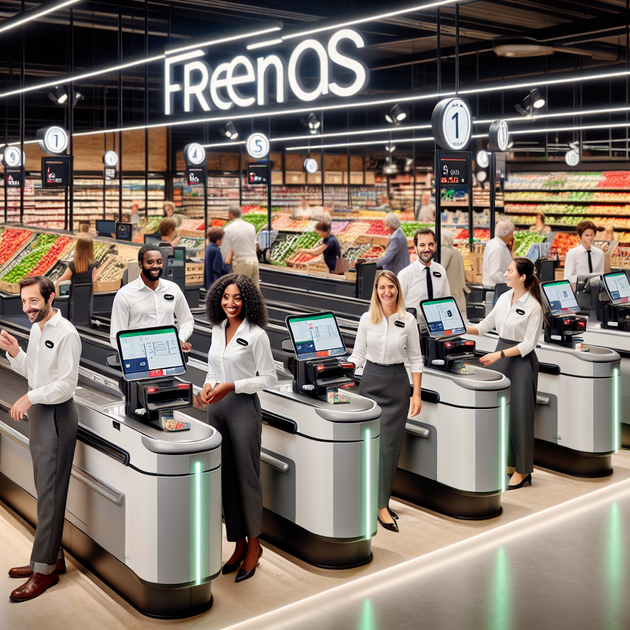What’s one thing most people don’t think about when shopping? For many supermarket staff members, it’s the risk of repetitive strain injury (RSI) from doing the same motions over and over all day. Now, thanks to something called the Perdelle system, a French supermarket has found a clever way to help keep its workers safe—and comfortable—on the job.
What Is the Perdelle System and Why Does It Matter?
The Perdelle system isn’t a household name yet, but it’s making waves in workplace safety—especially in supermarkets where tasks like scanning groceries or stocking shelves can put a real strain on employees’ bodies. Repetitive motions might sound harmless at first. But over time, they can lead to pain in hands, wrists, shoulders, or backs that just won’t go away.
So what exactly does the Perdelle system do? In simple terms, it automates some of those high-frequency movements in retail environments. By taking over tasks that usually require constant manual effort—like pushing heavy doors open or operating checkout mechanisms—it reduces physical stress on staff and lowers their risk of developing RSI.
How Does the Perdelle System Prevent Repetitive Strain Injury?
Let’s break down how installing something like the Perdelle system helps prevent those nagging aches and pains:
- Minimizes manual effort: Automates frequent tasks so staff aren’t repeating the same motion hundreds of times per shift.
- Improves posture: Reduces awkward bending or twisting by making equipment more ergonomic.
- Boosts efficiency: Frees up employees’ hands for other tasks instead of getting stuck on one movement all day.
- Reduces fatigue: Less physical wear and tear means more energy throughout long shifts.
- Lowers risk of injury: Fewer chances for strains mean healthier workers and fewer sick days.
In supermarkets—where jobs can be physically demanding—these changes add up fast. Employees can focus more on helping customers (and less on dealing with sore wrists or aching backs).
The Real-World Impact Inside a French Supermarket
This isn’t just theory. The installation of the Perdelle system in one French supermarket has already made daily life easier for its staff. For example, cashiers used to spend hours opening heavy security gates or handling bulky items repeatedly throughout their shifts. With automation taking care of those tough tasks now, employees report feeling less worn out by the end of each day.
One employee shared that she used to worry about developing pain from opening freezer doors dozens of times each hour. After her store installed the Perdelle system to automate those doors, she noticed her wrists felt much better after work—and she had more energy for her family at home.
It’s not only about health either; customers notice too! Shoppers are seeing happier staff who have more time (and energy) to answer questions or lend a hand with heavy bags.
Why Ergonomics Matter in Retail Environments
Retail jobs might not look dangerous at first glance—but they’re full of small risks that add up over time. Repetitive strain injury is one of the most common problems facing workers who perform similar movements again and again.
That’s why systems like Perdelle are so important:
- They keep employees healthy—which means lower turnover for supermarkets.
- They boost morale by showing that worker wellbeing really matters.
- They create safer spaces for both shoppers and staff.
Plus, as more stores adopt technology like this, it sets a new standard for what “safe” looks like in retail workplaces everywhere.
The Future of Workplace Safety Starts Here
The story of this French supermarket shows what’s possible when retailers put people first—and use smart solutions like the Perdelle system to protect them from everyday injuries. As automation becomes more common across all types of jobs, expect to see even more creative ways tech can make work safer (and healthier) for everyone.
Would you feel differently about shopping somewhere if you knew they took extra steps to keep their staff safe? Let us know your thoughts!

Leave a Reply